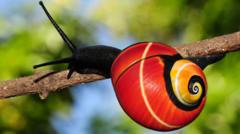Nigeria's Customs Service (NCS) has announced the interception of a staggering 1,600 birds intended for export to Kuwait, in what is considered the nation's most extensive wildlife-trafficking operation to date. On July 31, during routine inspections at Lagos International Airport, customs officials seized a shipment including ring-necked parrots and green- and yellow-fronted canaries, which lacked the necessary documentation and permits required for international trade.
Nigeria's Customs Agency Unveils Massive Wildlife Trafficking Bust

Nigeria's Customs Agency Unveils Massive Wildlife Trafficking Bust
In a significant crackdown, Nigerian authorities intercept over 1,600 birds destined for illegal trade, marking the country's largest wildlife-trafficking seizure to date.
The NCS, represented by spokesperson Abdullahi Maiwada, highlighted the operation as a pivotal moment in combatting a rampant wildlife trafficking issue that plagues Nigeria, a country known for its porous borders and high levels of corruption. While these bird species are not particularly rare, transporting them without proper certification remains illegal, and authorities are now investigating the origins and intended recipients of the shipment.
The birds will be transferred to the National Parks Service for rehabilitation and eventual release into their natural habitat. Although the seizure was conducted on July 31, it was only revealed to the public recently to avoid interfering with ongoing investigations. Maiwada also noted that many trafficked animals in Nigeria are often exported to Asian markets.
Despite being a signatory of the Convention on International Trade in Endangered Species of Wild Fauna and Flora (CITES), Nigeria continues to serve as a crucial node in the global wildlife trafficking network. The trade in illegal wildlife generates an estimated $7 billion to $23 billion annually, with demand for songbirds and exotic pets, including parrots, remaining particularly high among collectors and enthusiasts.
This recent bust underscores the escalating challenge Nigeria faces in curbing wildlife trafficking, as authorities aim to reinforce control measures at air and seaports to protect endangered species from the clutches of illegal trade.
For further updates, follow @BBCAfrica on Twitter or check out Facebook and Instagram for the latest news from Africa.
The birds will be transferred to the National Parks Service for rehabilitation and eventual release into their natural habitat. Although the seizure was conducted on July 31, it was only revealed to the public recently to avoid interfering with ongoing investigations. Maiwada also noted that many trafficked animals in Nigeria are often exported to Asian markets.
Despite being a signatory of the Convention on International Trade in Endangered Species of Wild Fauna and Flora (CITES), Nigeria continues to serve as a crucial node in the global wildlife trafficking network. The trade in illegal wildlife generates an estimated $7 billion to $23 billion annually, with demand for songbirds and exotic pets, including parrots, remaining particularly high among collectors and enthusiasts.
This recent bust underscores the escalating challenge Nigeria faces in curbing wildlife trafficking, as authorities aim to reinforce control measures at air and seaports to protect endangered species from the clutches of illegal trade.
For further updates, follow @BBCAfrica on Twitter or check out Facebook and Instagram for the latest news from Africa.

















